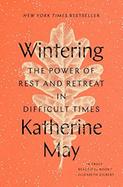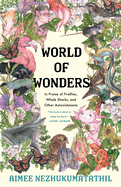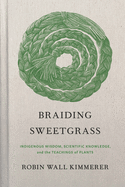 Amidst short cold days and longer, colder nights, I've been thinking about what winter can teach us--what Katherine May calls on us to notice in her contemplative and powerful book Wintering: The Power of Rest and Retreat in Difficult Times (Riverhead, $24). "We have seasons when we flourish," she writes, "and seasons when the leaves fall from us, revealing our bare bones." May's use of "wintering" is somewhat metaphorical, but winters, be they emotional or seasonal, call on us to slow down, redefine our concept of time (and what we do with it), get more sleep and rest.
Amidst short cold days and longer, colder nights, I've been thinking about what winter can teach us--what Katherine May calls on us to notice in her contemplative and powerful book Wintering: The Power of Rest and Retreat in Difficult Times (Riverhead, $24). "We have seasons when we flourish," she writes, "and seasons when the leaves fall from us, revealing our bare bones." May's use of "wintering" is somewhat metaphorical, but winters, be they emotional or seasonal, call on us to slow down, redefine our concept of time (and what we do with it), get more sleep and rest.
 While the ways of the modern world don't allow for full hibernation--my kid still needs to eat, even when it's cold out, and my inbox still pings with new messages, even when I'm tired--I've been heeding May's call to be slow in this season, to rethink how I use my time, and what that means. I'm re-reading the six contemplative essays in Zadie Smith's deceptively slim collection, Intimations (Penguin, $10.95), and thinking of what nature can teach us via Aimee Nezhukumatathil's World of Wonders (Milkweed, $25). I keep coming back to "Last Days" in Mary Oliver's Devotions (Penguin, $20): "Things are/ changing; things are starting to/ spin, snap, fly off into."
While the ways of the modern world don't allow for full hibernation--my kid still needs to eat, even when it's cold out, and my inbox still pings with new messages, even when I'm tired--I've been heeding May's call to be slow in this season, to rethink how I use my time, and what that means. I'm re-reading the six contemplative essays in Zadie Smith's deceptively slim collection, Intimations (Penguin, $10.95), and thinking of what nature can teach us via Aimee Nezhukumatathil's World of Wonders (Milkweed, $25). I keep coming back to "Last Days" in Mary Oliver's Devotions (Penguin, $20): "Things are/ changing; things are starting to/ spin, snap, fly off into."
 In the much-lauded Braiding Sweetgrass by Robin Wall Kimmerer (Milkweed, $35), I was again reminded of what it might mean to winter differently: "In winter when the green earth lies resting beneath a blanket of snow, this is the time for storytelling." What stories are we telling ourselves about this moment? And what stories might we hear if we slow down long enough to listen? --Kerry McHugh, freelance writer
In the much-lauded Braiding Sweetgrass by Robin Wall Kimmerer (Milkweed, $35), I was again reminded of what it might mean to winter differently: "In winter when the green earth lies resting beneath a blanket of snow, this is the time for storytelling." What stories are we telling ourselves about this moment? And what stories might we hear if we slow down long enough to listen? --Kerry McHugh, freelance writer

